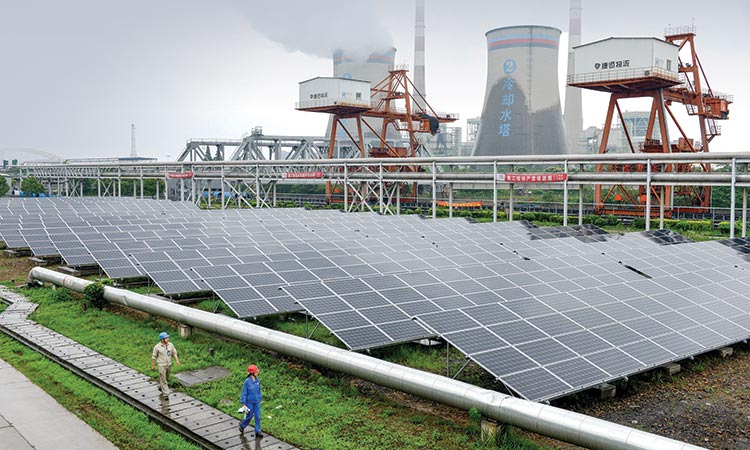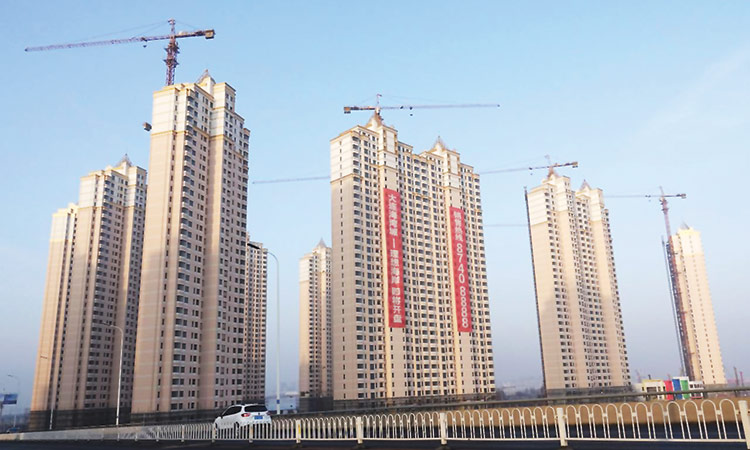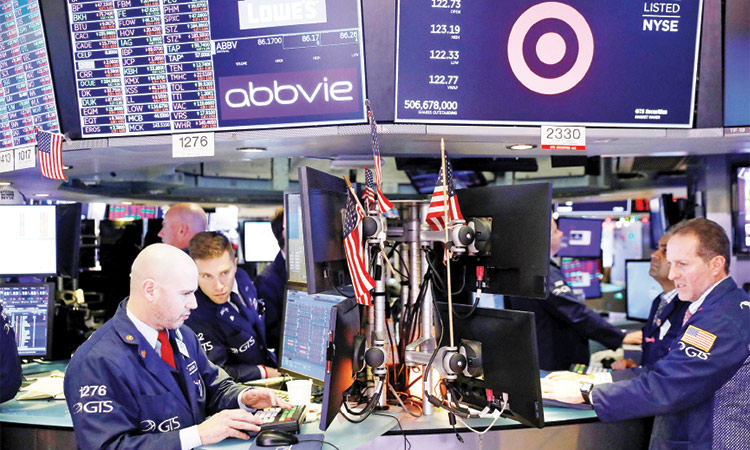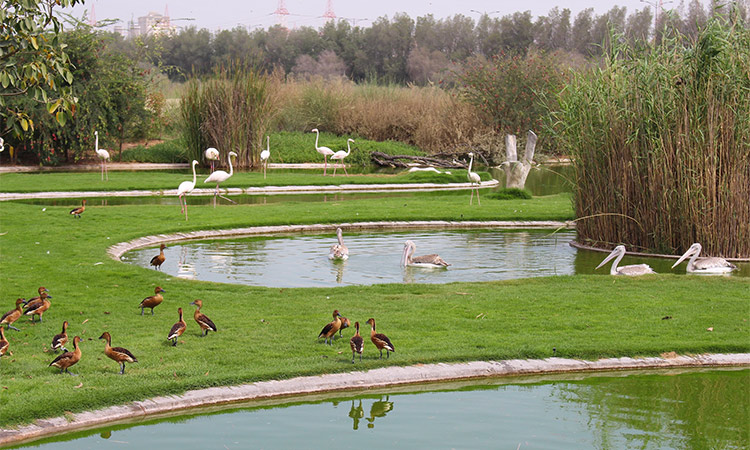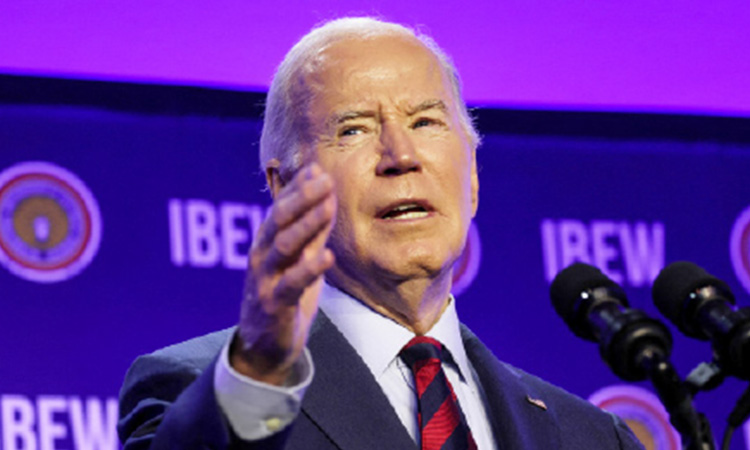Why is the UN ignoring China’s ‘training’ camps?
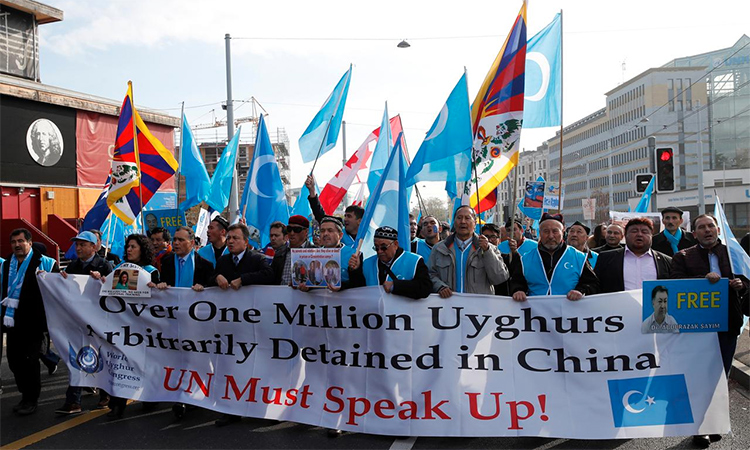
People demonstrate against China during its Universal Periodic Review by the Human Rights Council in front of the United Nations Office in Geneva. Reuters
Gulnaz Uighur, The Independent
The UN human rights council is letting down China’s Uighur Muslims. Protesters from our community have been gathered by the Broken Chair sculpture in Geneva for the ongoing 41st session of the UNHRC, hoping that their cries would be heard by the member states sitting not too far away. The disappointment came almost immediately.
The commissioner’s opening speech glossed over the brutalities going on in China. And our trust was broken on the second day of the UNHRC session, when the vice governor of Xinjiang was given a platform to sell Beijing’s propaganda of how its concentration camps are just “vocational training centers”.
The protesters had hoped to be the voice of more than two million people held in those camps; a voice for those who are not able to fight for themselves and who are allegedly tortured for being Uighur Muslims. They hoped that the potential genocide that is unfolding in China would be highlighted and condemned; that this would be the moment the world acted rather than just saying “never again”.
The camps have swallowed up a large number of Uighurs. People are being brainwashed into forgetting their cultures, religions and identities. They are being separated from their families. Women are being sexually abused, men tortured for hours for not remembering speeches by Xi Jinping or songs of the Communist Party of China.
Beijing claims it is training them to make them capable of getting jobs. But what jobs do the Uighur scholars, doctors, scientists and artists need? What training do they need to get jobs they already have? Why are they even sent to these camps? Even Uighur footballers have found themselves whisked away, out of public view.
How is it possible that an entire population is going through some sort of “training” without being allowed to talk to anyone, contact anyone or even return home? The only organization which can break this cycle of sinister events is the UNHRC, but the latest incidents indicate the appetite is not there.
Is China calling the shots for the biggest organisation dedicated to fighting for human rights? If the answer is yes, then it calls into question our understanding of the free world. There has been a steady increase in the number of testimonies by ex-detainees and researchers as well as proof of the camps through satellite imagery and media investigations – the UN has even sent a senior Russian official on an unplanned visit to Xinjiang last month.
But after that visit, the foreign ministry in China issued a statement to say they had reached a “broad consensus” with UN on counter-terror issues. And since that moment, the UN has been entirely silent on the worsening human rights situation.
Beijing now contributes around 10.25 per cent of the total UN peace-keeping budget. It would be no surprise if this, coupled with the US withdrawal from UNHRC had helped to put China front and centre of the organisation. For decades China has taken a back seat, making its points quietly. Now, though, it wants to be seen, and agreed with too.
The country has gone as far as suggesting the phrase “human rights defender” to be removed from the UN lexicon. In March 2018, China introduced a resolution, titled “Promoting mutually beneficial cooperation in the field of human rights through win-win cooperation”. The UN’s silence over China’s Uighurs is deafening. And crucially, it will likely result in other people being treated in the same way. If the world today is not ready to stand with the Uighurs, will it be able to stand up itself tomorrow?
China’s influence can be even more clearly seen in countries where Beijing has more power. In Kazakhstan, human rights organisations are not able to speak against the illegal detention of Kazakhs in China because their own government is shutting them down. In Pakistan, media that is too critical of China has been censored, even as Pakistani girls are trafficked to China through fake marriage scams.
The mission of the UNHRC is to promote and protect human rights, but if Beijing is allowed to lead it, then this mission will soon become to promote and protect human rights offenders. China’s treatment of our community should be a powerful warning to the world, and the world should have the courage to call it out for what it is.
